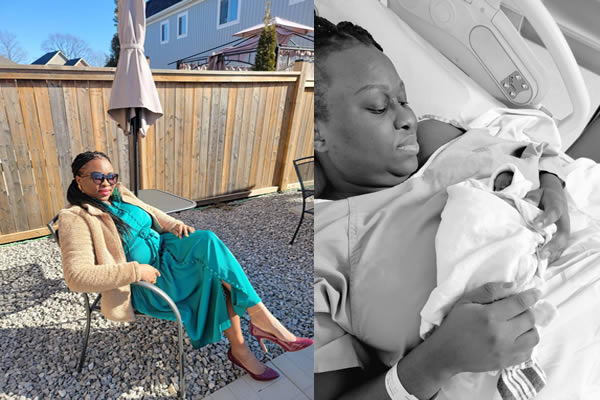A Canada-based Nigerian nurse Birgit Uwaila Umaigba, is mourning the loss of her son David, whose death was due to the negligence of healthcare givers in an Ontario hospital.
Umaigba said on her birthday, at only 18 weeks of her pregnancy journey, her water broke prematurely (also known as the prelabour rupture of membranes) and she was diagnosed with oligohydramnios, a condition of very low amniotic fluid that occurs in only about four per cent of pregnancies.
She said the first Obstetrician she met hurriedly told her to go home and wait for a miscarriage as there were no beds and sufficient nurses to monitor her.
“When my water broke prematurely, the OB (Obstetrician) told me to go home and wait for a miscarriage. She was cold and detached,” Umaigba narrated.
However, after she pleaded to stay in the Labour and Delivery (L&D) ward, she was sent back to the Emergency Room to be monitored overnight by non-L&D nurses in case she went into labour.
“It was scary, but I complied. I was in too much shock to advocate for myself…The team had no idea what to do with me as the OB didn’t communicate with anyone.
“As a nurse, I felt I was supposed to be having fluid replacements, but then, I forgot to ask the ED nurse. In the morning, the day nurse told me I was supposed to have received intravenous fluid replacement overnight. No one checked.
“I didn’t even have a saline lock for an emergency in case I went into labour. My lips were dry. I felt so dehydrated. No one offered me oral fluids, nor did I receive the prescribed IV fluids. Care was suboptimal. Felt like my life meant nothing,” she recalled.
By the next day, she felt intense cramps and had a fever after she left the hospital. She returned and met another Obstetrician who informed her she had been fully infected and efforts were made to save her life by inducing labour. Her baby was brought out dead.
Umaigba who had previously lost a child added: “Once again, the healthcare system failed us. Baby David came as my birthday present but came too early. He was born at 18 weeks and died at birth”.
Reacting to Umaigba’s ordeal, an Associate Professor of Obstetrics and Gynecology Genevieve Eastabrook admitted there was a knowledge gap among care providers for people experiencing second-trimester pregnancy complications, as well as a lack of infrastructure and medical racism.
“In Canada, Black and Indigenous women have significantly higher rates of maternal morbidity and mortality, as well as higher rates of adverse perinatal outcomes,” Eastabrook said.
According to a study, Indigenous women typically were found to have less access to maternity and infant care, as well as poorer pregnancy outcomes than non-Indigenous women.
There have been recent stories in the news about the horrific treatment of Indigenous women experiencing pregnancy loss.













